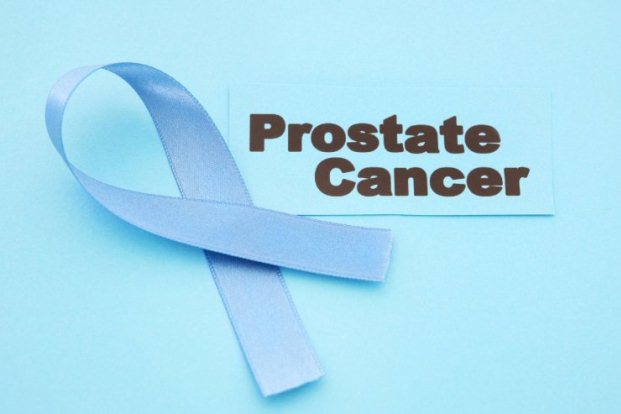Prostate cancer survival rate after surgery
Apr 19, 2022
Prostate cancer is one of the second most frequently occurring cancer in men and it is known to predominantly affect elderly men of above 65 years of age. Recent studies highlight that the incidence of prostate cancer in India is lower than that in the western countries.

Symbolic blue ribbon with words.
Strategy to be followed after the proper diagnosis of prostate cancer is as follows:
Staging
Staging is a standard approach used to investigate the severity and duration of prostate cancer. Staging provides information about the extent of a primary tumour, distance from lymph nodes and presence of distant metastasis. This staging is essential to understand cancer, the extent to which it has spread and the depending on the medical situation decide on the plan for treatment.
Treatment options for Prostate Cancer:
A perfect treatment plan for the management of prostate cancer may involve a combination of monitoring cancer closely with or without surgery. As the disease progression is relatively very slow, some men may never require any treatment. Although they will be under keen observation and monitoring by their doctors, watchful waiting and active surveillance are important aspects.
Surgery For Prostate Cancer Treatment:
- Surgery may be opted to ascertain complete removal of cancer.D different types of prostate surgeries are radical retropubic prostatectomy, radical perineal prostatectomy, laparoscopic radical prostatectomy, robotic-assisted, laparoscopic radical prostatectomy, transurethral resection of the prostate and cryosurgery.
- Chemotherapy and medications-Medications like docetaxel, mitoxantrone with prednisone may be used for bone metastases,
Radiation Therapy for Prostate Cancer:
High energy X-rays are used in radiation therapy to shrink cancerous cells. There are two types of radiation therapy which are used to treat prostate cancer – External beam radiation (three –dimensional conformal therapy and Brachytherapy (short-term and permanent).
Hormone therapy for Prostate Cancer:
This therapy is used against cancerous cells which have spread to other parts of the body and which recurred after treatment.T his therapy cannot cure cancer completely, but it can shrink the cancer cells and make them grow more slowly.
The metastatic disease stage IV is treated with hormone therapy which ceases production of testosterone, medications to stop the body production of testosterone and surgery to remove the testicles.









